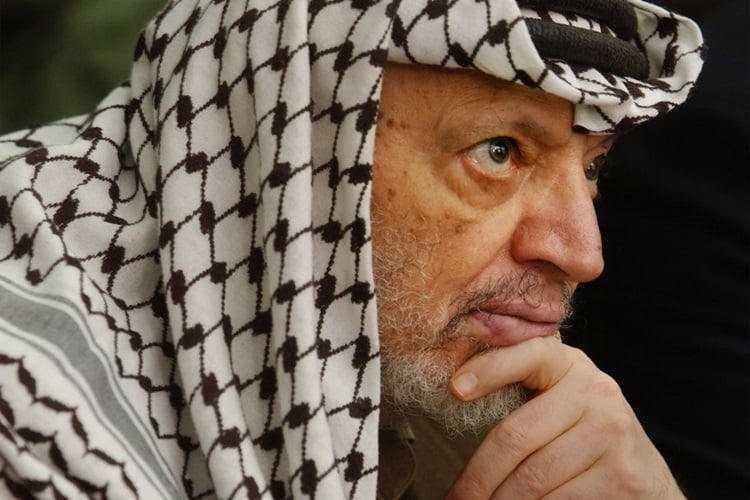Yasser Arafat (24 August 1929 – 11 November 2004) was a significant political figure in the Middle East, notably known as the chairman of the Palestinian Liberation Organization (PLO) and the first president of the Palestinian Authority.
Life and Career
Yasser Arafat was born on August 24, 1929, in Cairo, Egypt. He was the fifth child of a Palestinian merchant. Arafat’s early education occurred in Jerusalem, but he later moved to Cairo to continue his studies. He attended the University of King Fuad I (now Cairo University), where he studied engineering. However, he did not complete his degree, as his focus shifted towards political activism.
Arafat emerged as a prominent figure in the Palestinian nationalist movement in the mid-20th century. In the 1950s, he co-founded the Fatah movement, a significant part of the broader Palestinian Liberation Organization (PLO). The PLO aimed to secure an independent Palestinian state.
Arafat became the chairman of the PLO in 1969 and led the organization in its pursuit of Palestinian self-determination and the establishment of an independent Palestinian state. He became known for his unwavering stance on Palestinian rights and his approach to armed resistance against Israeli occupation, which brought him both support and criticism.
Throughout the latter half of the 20th century, Arafat was a central figure in negotiations, peace talks, and conflicts between the Palestinian movement and Israel. In 1994, he received the Nobel Peace Prize, along with Israeli leaders Shimon Peres and Yitzhak Rabin, for their efforts to achieve peace in the Middle East through the Oslo Accords, which led to limited Palestinian self-rule.
Yasser Arafat passed away on passed away on November 11, 2004.
Award and Legacy
Yasser Arafat was awarded the Nobel Peace Prize in 1994 along with Israeli leaders Shimon Peres and Yitzhak Rabin. This prestigious honor was in recognition of their efforts to bring about peace in the Middle East through the Oslo Accords, a series of agreements intended to pave the way for the resolution of the Israeli-Palestinian conflict and to establish a framework for peace negotiations.
Yasser Arafat’s legacy is multifaceted. He is remembered as a symbol of Palestinian nationalism, a pivotal leader in the Palestinian liberation movement, and a Nobel laureate for his peace efforts. However, his legacy is also marked by controversy and mixed opinions about his methods and approaches in the pursuit of Palestinian statehood and the resolution of the Israeli-Palestinian conflict.

